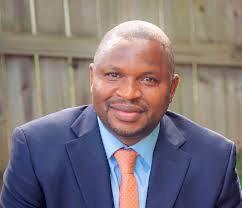
By Temi Ogunsanya
(Independent Observer)
As an independent observer of the controversy involving a female student and one Dr. Anthony Agbegbedia, it is essential to address the sensationalism that underpins Farooq Adamu Kperogi’s article, ” Notorious, Overprotected Sexual Predator at Ekiti University ,” published on 2nd December 2024. Kperogi, a professor of journalism and emerging media, has once again indulged in his penchant for hyperbolic and inflammatory rhetoric. This time, his target is the Federal University Oye-Ekiti (FUOYE) and Dr. Agbegbedia, whom he brands a “notorious sexual predator” in a piece riddled with sensationalism and defamation.
While critique and advocacy for justice are integral to societal progress, Kperogi’s approach undermines these values. His reliance on provocative language and unverified claims serves not to foster accountability but to erode the reputations of individuals and institutions. Such reckless journalism distracts from meaningful discourse and instead fuels discord and mistrust.
Kperogi’s depiction of FUOYE and its Vice-Chancellor, Professor Abayomi Fasina, as complicit in misconduct is both baseless and defamatory. By framing the university as a “haven for predators,” he disregards its recent strides in academic excellence and international recognition. Under Professor Fasina’s leadership, FUOYE has demonstrated a commitment to fostering integrity and excellence—an achievement that should not be overshadowed by isolated incidents.
One might expect Kperogi, as a scholar, to adopt a more judicious stance by seeking verifiable evidence rather than amplifying unverifiable narratives, potentially influenced by those seeking to undermine the institution. His pronouncement of Dr. Agbegbedia’s guilt, absent a legal trial, is founded solely on alleged WhatsApp exchanges and media reports he deems “irrefutable evidentiary facts.” Such a stance ignores the realities of digital manipulation and the fundamental legal principle of “innocent until proven guilty.”
The allegations against Dr. Agbegbedia are undeniably serious and warrant thorough investigation. However, conflating his case with that of a former lecturer, Dr. Desen Mbachaga, illustrates Kperogi’s superficial understanding of the nuances involved. Unlike Agbegbedia’s contested and circumstantial case, Mbachaga’s guilt was established through direct evidence and admission. This failure to distinguish between the two undermines Kperogi’s argument and calls into question his journalistic rigor.
If Kperogi truly embodies the academic ethos of a professor of emerging media, one would expect a meticulous investigation into the facts. His apparent neglect of journalistic standards not only discredits his analysis but also diminishes his influence as an academic journalist. Such failings are particularly grave for someone tasked with shaping public opinion and mentoring future generations.
FUOYE’s handling of the allegations—issuing a warning to Dr. Agbegbedia while allowing due process to proceed—has been criticised by Kperogi as insufficient. However, this measured response underscores the complexity of the case and the university’s commitment to ensuring fairness. It is worth noting that no conclusive evidence of sexual abuse, as alleged, has yet been presented against Agbegbedia.
Universities face the delicate task of safeguarding institutional integrity while ensuring fairness to all parties involved. Sacrificing individuals to appease public opinion, as Kperogi suggests, undermines the principles of justice and due process. His demand for the Vice-Chancellor to summarily dismiss Dr. Agbegbedia reveals a fundamental misunderstanding of university governance, where staff termination requires approval from the governing council.
Furthermore, Kperogi’s article, laden with hyperbolic descriptions such as “ravening, sex-starved wolf” and “hunting ground for ravenous sexual wolves,” raises questions about his intent. This inflammatory language detracts from the credibility of his argument and shifts focus from the systemic reforms needed to address sexual harassment in academia. Instead of fostering constructive dialogue, Kperogi resorts to personal attacks that risk irreparably damaging reputations.
Sexual harassment in academia is a pressing issue requiring collective action and systemic change. Addressing this challenge necessitates a balanced approach that respects due process, upholds fairness, and prioritises meaningful reforms over sensationalism.
For FUOYE, this case presents an opportunity to reaffirm its commitment to transparency and accountability by strengthening policies and procedures for handling misconduct allegations. Public commentators like Kperogi should use their platforms to promote constructive dialogue and advocate for systemic change, rather than resorting to sensationalist rhetoric.
In conclusion, while the allegations against Dr. Agbegbedia deserve thorough scrutiny, Kperogi’s approach undermines justice and discredits an institution making commendable strides in academic excellence. Societal challenges are best addressed through balanced reporting and constructive criticism, not inflammatory language masquerading as advocacy.
If Kperogi wishes to make a meaningful contribution to public discourse, he would do well to elevate the intellectual rigor of his platform. Transforming Notes from Atlanta into something more substantive—perhaps Reports from Atlanta—grounded in rigorous inquiry and journalistic integrity, would better serve the societal causes he claims to champion.











